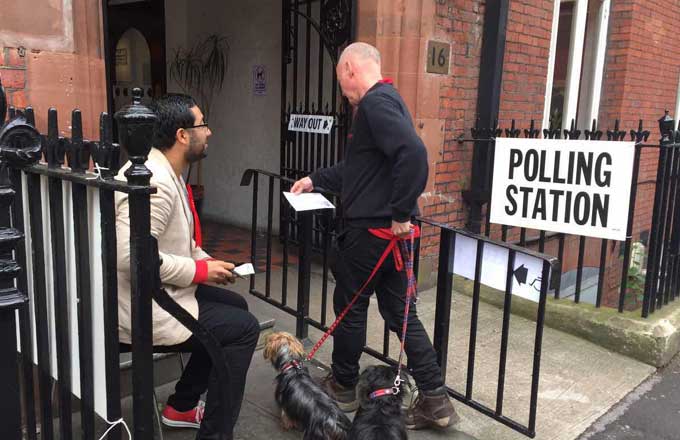

All this anguish might be worth it if the economics behind it made sense, but attacking insolvency with austerity is self-defeating. In countries as disparate as Greece and Britain, more burdensome taxation and reduced public services - ostensibly to pay down debt - have resulted in a return to recession and increased national borrowing.
Nor does trying to appease the money market work. As fiscally continent Northern European nations enjoy reduced inflation, prices are soaring for southern nations. Instead of rewarding fiscal moderation, giant European investment funds like Finland's Varma, which manages $44 billion in assets, are shunning government bonds issued by "problem countries" like Spain and Italy. "There is so much political risk," says Risto Murto, Varma's chief investment officer.
The crisis has also trampled democracy. In Spain and France, governing parties of both the left and right have been voted out, but their replacements quickly adopted policies identical to those of their predecessors. This is creating widespread disenchantment with the democratic process. Even more troubling, democratically elected politicians are being pushed out in favor of more pliant technocrats. Mario Monti, a former EU official who held no elected post, was parachuted in to lead Italy out of its financial mire at the behest of Brussels. What Yale historian Timothy Snyder has described as "pantomime republics" make a mockery of the Nobel Committee's admiration for the EU's "successful struggle for democracy and human rights."
There is a way out - if Europe's leaders can persuade Europeans that a united state is not only desirable but essential in an increasingly competitive world. If the EU is to succeed, the people must be offered clear democratic choices about Europe's future. If not, the EU will fall apart. For Germany to dictate terms to the rest of the euro zone and install a single fiscal regime with a single annual budget across all European nations designed and applied in a central treasury and policed by an unelected "super-commissioner" seems intolerable and may be untenable. It may also be that Germany, fearful of inflation and driven by its reliance upon exports, has too strong an economy to be shackled to the rest of the EU. As George Soros bluntly put it, "Germany should either lead or leave."
The pressure is on German Chancellor Angela Merkel to lead Europe out of this morass. She must see that her goal of a single European state is imperiled by an economic chasm that divides Europe into north and south. The way out of the euro-crisis is not to demand more austerity and closer unity but to allow Europe to grow its way out of trouble.
Merkel is an intensely practical woman who embraces the no-nonsense approach to big ideas of her predecessor Helmut Schmidt, who once said, "Those who have a vision should see a doctor." Growing up in East Germany, she learned to keep her thoughts to herself, but now is the time to think big and talk big. First she would need to have a serious talk with her constituents, who have prospered mightily thanks to the euro. German exports were expensive when priced in deutschmarks and are now a bargain in euros. As the rest of Europe slid into recession, Germany's economy continued to grow, and young Germans, unhampered by their parents' and grandparents' war guilt, have grown tired of picking up the tab for the rest of Europe.
Merkel would have to convince those adoring voters that the biggest threat to their affluence is not hyper-inflation, as it was for the Weimar generation, but deflation, long-term joblessness, chronic poverty in the rest of Europe, and the ancient grievances those conditions feed. Then she could deliver a bold, defining speech that would explain how all parts of the continent will benefit from a strong EU, while offering compassion to those caught in an economic bind and an optimistic endgame to these hard times. There is no mood for the type of generous government spending that cured the Great Depression and lifted Western Europeans to their feet in 1945 through the Marshall Plan, but Merkel could offer prosperity through growth so that all Europeans would feel they had a stake in the EU. She should reassure all the peoples of Europe that they can better weather the current economic storms and fierce market challenges ahead by sticking together.
Merkel might even indulge in a little stargazing and affirm the commitment of Europe's leaders not merely to a united state but to a united people. She should pledge that the EU will be a democratic, transparent, benign, well-ordered, peaceful society in which national and regional aspirations are guaranteed and individual rights protected.
Herman Hesse once wrote, "It is not our purpose to become each other; it is to recognize each other, to learn to see the other, and honor him for what he is." If Merkel could hit that note, the whole of Europe would owe her their loyalty and gratitude.












